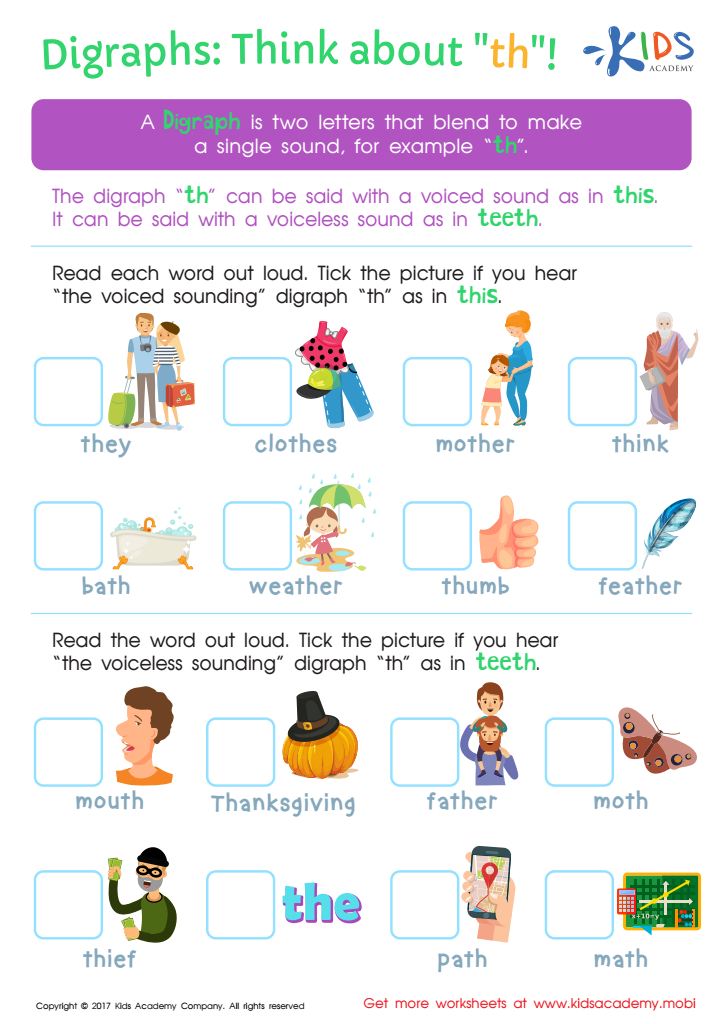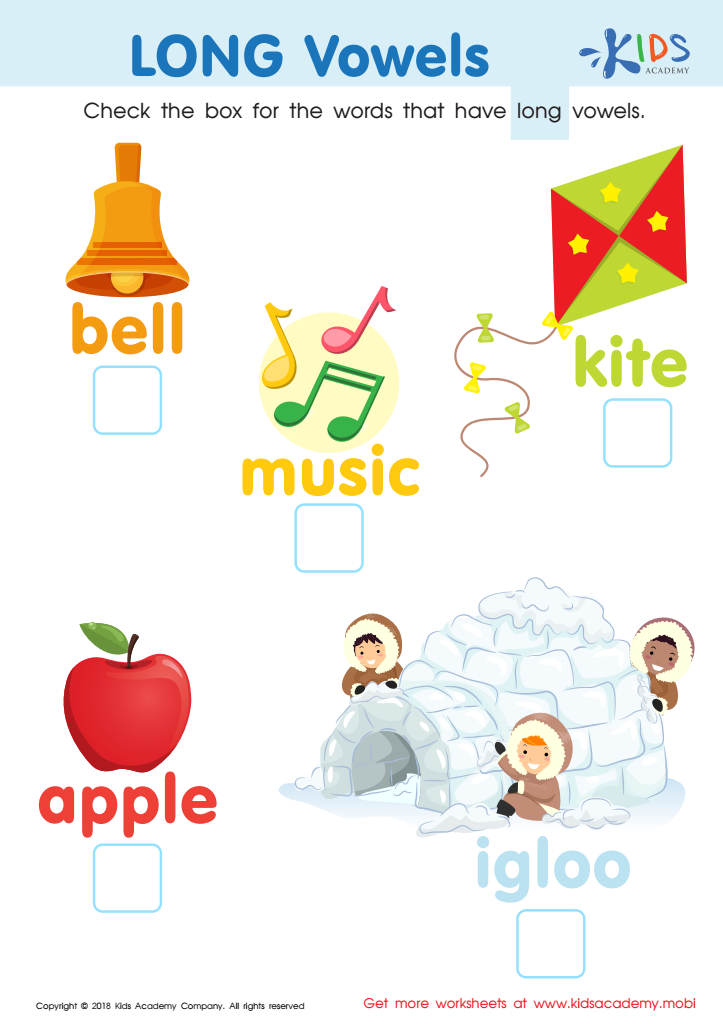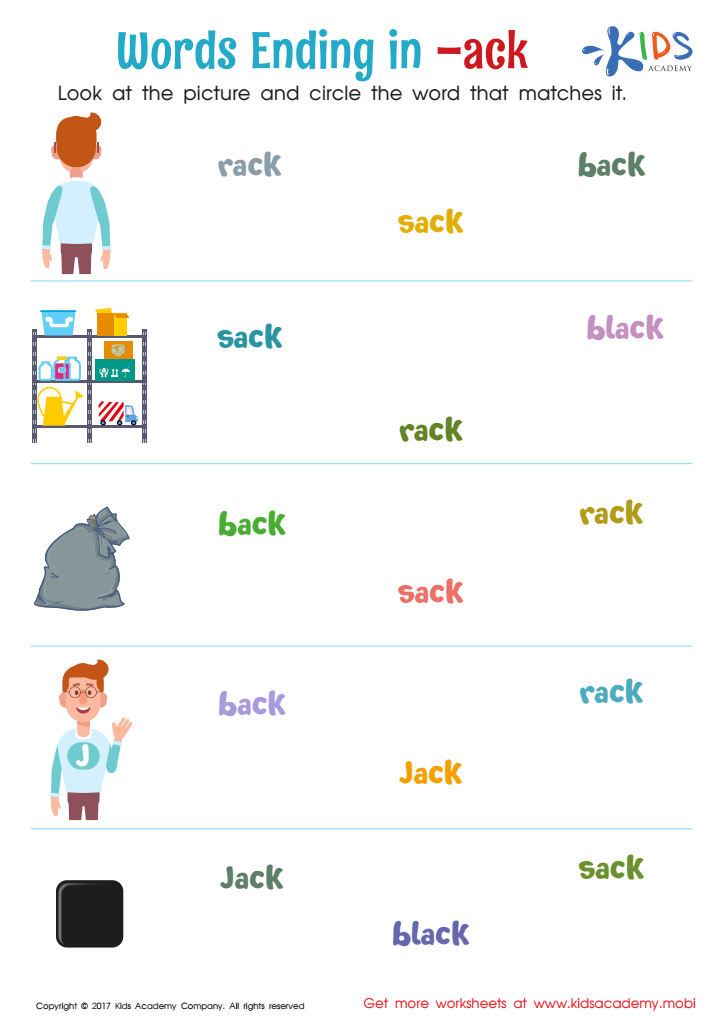Phonics application Worksheets for Ages 6-9
3 filtered results
-
From - To
Welcome to our Phonics Application Worksheets for Ages 6-9! Designed to enhance phonemic awareness, these engaging worksheets provide young learners with fun activities that reinforce their understanding of sounds and letter combinations. Each worksheet encourages children to practice essential skills such as blending, segmenting, and decoding, fostering their reading development. Perfect for classroom use or at-home learning, our collection includes various interactive exercises that cater to different learning styles. With colorful illustrations and engaging tasks, kids will love exploring the world of phonics while building strong foundational skills. Start your child's reading journey today with our comprehensive phonics worksheets!


Digraphs: Think About "th" Worksheet


long vowels Worksheet
Phonics application for children ages 6-9 is crucial for their reading development and overall academic success. This critical stage is when children transition from learning to read to reading to learn. Phonics instruction helps them understand the relationship between letters and sounds, equipping them with the skills needed to decode words independently.
Emphasizing phonics during these formative years promotes phonemic awareness, where children recognize and manipulate individual sounds in words. This skill fosters improved spelling and vocabulary growth, enhancing their overall communication abilities. Parents and teachers should advocate for phonics-based approaches because children who learn phonics are better prepared to tackle complex texts as they progress in school.
Moreover, early phonics instruction can also prevent reading difficulties later in life. Evidence suggests that students who struggle with reading in third grade are more likely to encounter academic challenges in subsequent years. By prioritizing phonics, parents and teachers not only support literacy development but also boost learners’ confidence and enthusiasm for reading. In fostering strong foundational skills in phonics, they pave the way for a lifetime of learning and academic achievement, making it a crucial investment during this pivotal age range.

 Assign to My Students
Assign to My Students

















